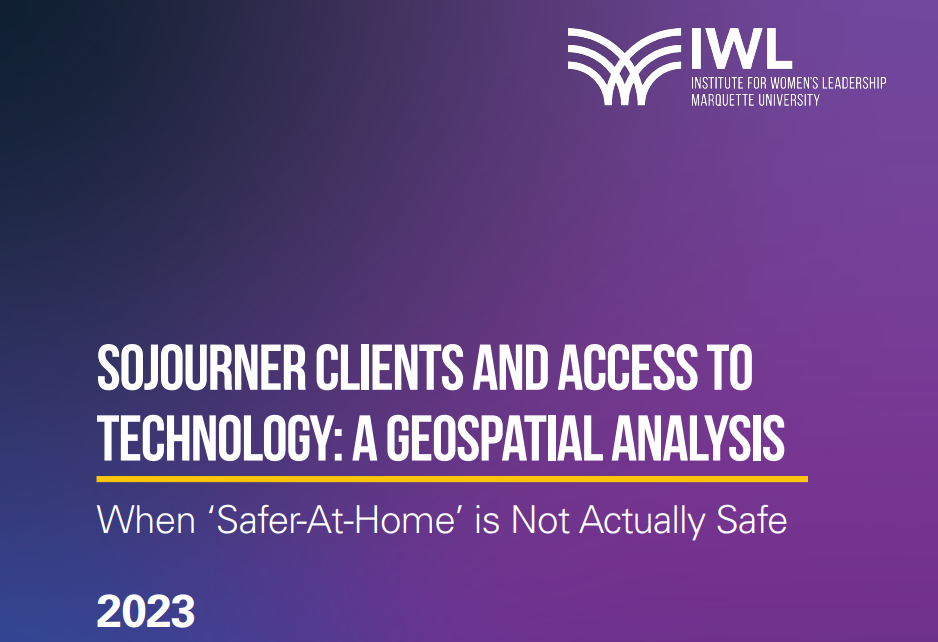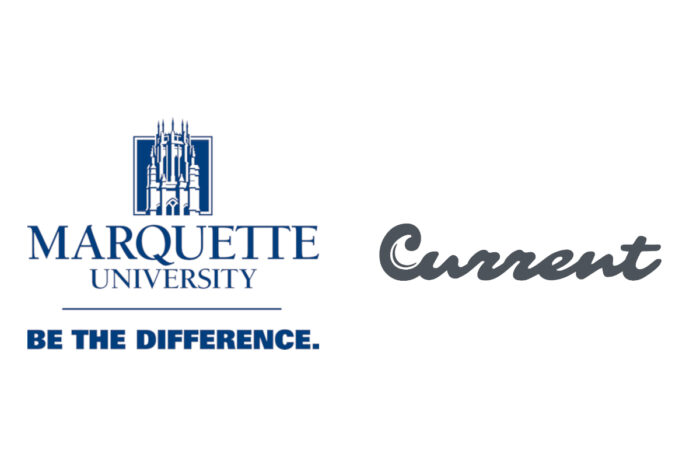
Expanding broadband coverage in communities most impacted by domestic violence is necessary to provide adequate resources and support for victims of domestic violence, according to a white paper published by the Institute for Women’s Leadership at Marquette University.
The paper, “Sojourner Clients and Access to Technology: A Geospatial Analysis,” found a significant correlation between the census tracts where the Sojourner clients from this study reside and the proportion of households that had limited access to computer technology or relied primarily on smartphone access as opposed to broadband internet.
The paper’s author, Dr. Aleksandra Snowden, associate professor of social and cultural sciences, conducted the analysis in partnership with Sojourner Family Peace Center and studied geospatial data of Sojourner clients. The study represented 30 ZIP codes and 58 different Milwaukee census tracts.
Wisconsin state statutes prohibit municipalities from directly providing or subsidizing broadband internet service to community residents, but Snowden says there is preliminary evidence that suggests expanding internet coverage in underserved communities is a recognized need in the city and should be a goal for the future.
Research also indicated that Sojourner clients reside in neighborhoods that are characterized by high levels of violent crime, poverty and unemployment, suggesting that domestic violence is part of a larger pattern of violence that occurs in the neighborhoods.
“The findings of this study suggest some tentative associations between technological resources and locations where Sojourner clients live,” Snowden says, “and expanding the availability of technological resources to survivors of domestic violence — so that survivors are better able to access the electronic filing system — must be a priority for community leaders.”
This is the second white paper released by the IWL stemming from Marquette’s President’s Challenge for COVID-19 Response in 2020. IWL leadership was one of three recipients in funding for its project, “When Safer-at-Home is Not Actually Safe: Supporting Intimate Partner Violence Survivors during Quarantine.” The first paper, “A Guide to Better Understanding and Supporting Domestic Violence Survivors in Our Workplaces: When ‘Safer-At-Home’ is Not Actually Safe,” was released on Denim Day 2021 and looked at better understanding and supporting domestic violence survivors in our workplaces.
Additional editorial support for this paper was provided by Sarah Camp, IWL coordinator, and Dr. Karalee Surface, IWL leadership development coordinator.
The Institute for Women’s Leadership builds upon Marquette University’s historic role as the first coeducational Catholic university in the world beginning in 1909. The mission of the IWL is to support and conduct cutting-edge gender research and build transformational experiences and relationships that empower women and advance women’s leadership.


